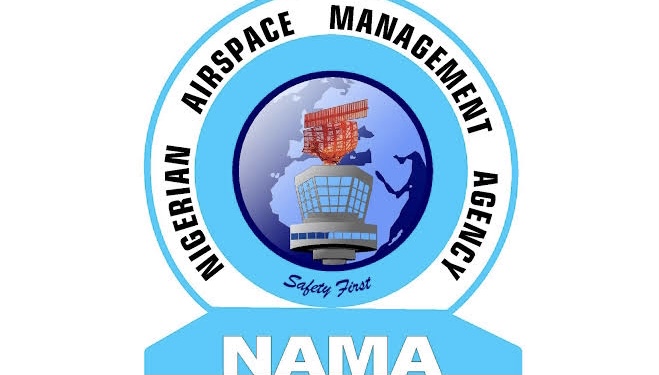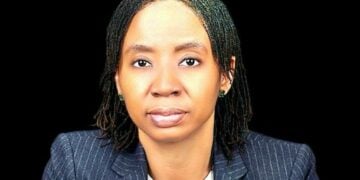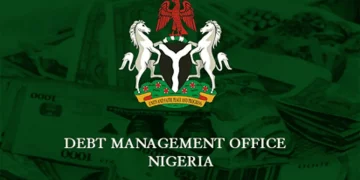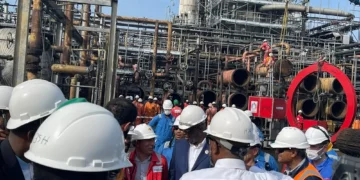The managing director of the Nigerian Airspace Management Agency (NAMA), Engr. Farouk Umar has raised the alarm that the current 50 per cent deduction of their revenue at source has crippled the agency’s capacity to meet its statutory responsibility, expand capacity, and deliver on international obligations.
The MD, while speaking at the ongoing four-day retreat of the House Committee on Aviation in Abuja titled, “Emerging Trends in Global Aviation: Sustainability, Technology, and Digital Transformation,” sought the intervention of the National Assembly to end the 50 per cent revenue deduction and attain financial autonomy.
According to Umar, modernising Nigeria’s aviation sector cannot happen without financial reform.
The NAMA boss stated that it had become imperative for NAMA to maintain critical infrastructure like towers, radars, and communication networks; pay and train thousands of skilled personnel who manage the skies daily; fund critical upgrades like Performance Based Navigation (PBN) and Satellite-Based Augmentation Systems (SBAS) meet International Civil Aviation Organization (ICAO)’s stringent safety standards as well as deliver continuous service to airlines without interruption.
However, he called for the full enforcement of section 9(2) of the NAMA Act 2022, which stipulates that all fees and charges imposed by NAMA are not subject to deductions or remittance to any other body.
He stressed that adherence to the provisions of Section 9 (2) of the NAMA Act would enable the agency to fund critical infrastructure, ensure regular maintenance and calibration of Communication, Navigation and Surveillance (CNS) equipment to ensure compliance with ICAO standards, employ and train critical personnel and invest in digitalisation and innovation to remain competitive globally.
Umar also solicited the House Committee’s intervention to ensure the implementation of the Obstruction Evaluation Fees Provision in section 18 (1) (a), (b) and (xii) of the same NAMA Act, 2022 which states that “there shall be established and maintained by the agency, a fund into which shall be paid and credited all fees and funds accruing from obstacle evaluation fees.”
He argued that the statutory provision unambiguously empowered NAMA to collect obstruction evaluation fees as part of its mandate to ensure the safety, efficiency, and regularity of Nigeria’s airspace, but regretted “the current overlap of roles, where another aviation agency continued to exercise functions statutorily vested in NAMA, and constrained the agency’s capacity to harness this lawful revenue source.”
Engr Umar’s demands also included a comprehensive review of the air navigation charges, which he noted have been stagnant since 2008.
He emphasised that the review required urgent attention to reflect current economic realities and ensure proper cost recovery.
Earlier in his address, the chairman of the House Committee on Aviation, Rt. Hon. Abdullahi Idris Garba, expressed the national assembly’s desire to develop actionable plans and reinforce priorities that enhance aviation safety and also improve infrastructure and regulatory compliance.
He noted that the time had come for stakeholders to effectively share our expertise and synergise to address the challenges and also tap into the opportunities that abound in the sector.
He expressed confidence that the retreat would significantly strengthen collective efforts to advance the aviation sector in Nigeria.





